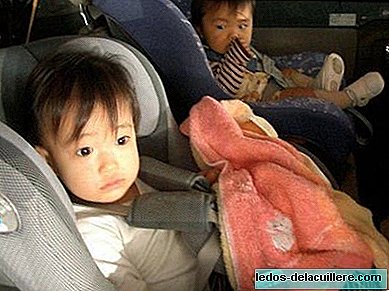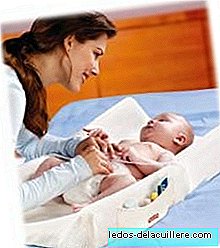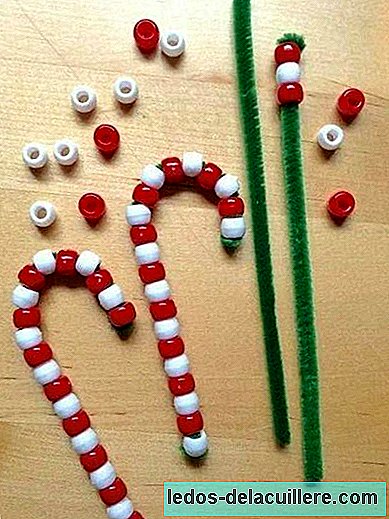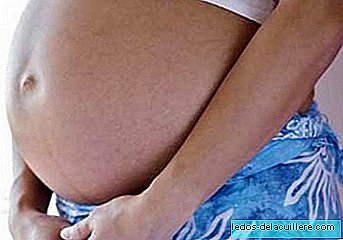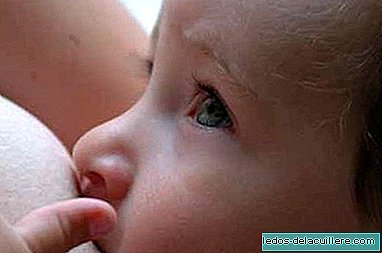
Both during pregnancy and during breastfeeding it is important that the woman follow a healthy diet and rich in the nutrients necessary also for her baby. However, according to a study from the University of Granada, Nine out of ten women who breastfeed their children do not follow a proper diet·
The truth is that I have been surprised by such high figures, up to 94% of mothers who breastfeed their children consume less fat, vitamins A, E and iron and more proteins than the recommended daily amounts, although I really do not think so that significantly affects the nutrients that reach the baby.
The research will serve to create health education groups on feeding in pregnant women in health centers and hospitals, showing that the composition of the diet of nursing mothers should be improved and thus implement the contribution of nutrients to the newborn and infant.
The work has been prepared by Jose Luis Gómez Llorente, from the UGR Department of Pediatrics, who collected a total of 100 milk samples from 34 nursing mothers in the provinces of Granada and Almeria.
To all of them a questionnaire was passed to know the dietary intake made the 3 days prior to the taking of the milk sample. Its objective was to compare them with the daily recommendations in order to detect deviations.
Of the results obtained, the most remarkable thing is that 94% of the mothers maintain a hypocaloric diet, due to the low intake of fat, and hyperproteic, since they take a protein content superior to the recommendations.
It also highlights the deficit in vitamins A (in 88% of women) and E (in 99%) of the diet of the mothers in the study.
Upgrade: We had previously pointed out that one of the numerical data that appeared in the news about the study was wrong, specifically, that which spoke of iron needs.
But after having contacted the author to clarify the figures on which there were doubts, he confirms that regarding the average iron consumption (the study talks about it being 13.8 milligrams / day and places it below recommended), the recommendations taken as a basis are those of Spain published by the UCM (Complutense University of Madrid) that are 18 mg / day in infants.
The American recommendations of the GDR (Recommended Dietary Allowance. Food and Nutrition Board. Institute of Medicine. National Academy of Sciences) establish for nursing mothers 9 mg a day, but for the study the previous scales have been taken.
We see that there is no agreement in these recommendations, which vary between countries, authors and dates, there is controversy over their disparity and there is evidence of the need to review them to find a consensus.
In the case of a lower intake of iron, remember that the baby would have enough iron reserves in his body until six months, provided that the umbilical cord is not cut early or not premature, when they will need to take the iron from their feeding.Recommendations to improve the maternal diet
According to the author of the study,
The diet affects the composition of the milk and, therefore, the food that newborns receive. If the mother's diet is deficient and lacking, the milk will also have those absences and the newborn will be deficient in some vitamins or hydrates.
Therefore, it is recommended that mothers increase their consumption of cereals and fruits and decrease that of trans fats, refined oils and industrial pastries, among other tips. It also highlights the lack of Omega-3, an essential fatty acid for the complete development and functioning of the human brain and that is contained in various foods.
I think they are tips to follow at any time in our lives, but especially during pregnancy and lactation, and not only for the baby but for the health of the woman. However, and answering the question asked by the title, I am of the opinion that, in general, we do not usually eat well or take too much care of our diet during breastfeeding, or during pregnancy, or in any other period, neither men, nor women.
But if at any other stage that lack does not visibly affect us, to prevent the deficit of vitamins or minerals and trace elements that our diet may miss, we can take during our pregnancy and lactation the nutritional supplements indicated by our doctor. In this way we contribute to our health and that of the baby, without neglecting the healthiest, most complete and balanced diet possible.
Regarding this study, it seems to me that the sample taken is quite small, and we have not been able to access the aforementioned recommendations.
And while the mother's diet determines the composition of the milk, with respect to the vitamins present in breast milk we must remember that cover the needs of the baby, but they are variable in concentration, according to the nutritional state and the contribution of vitamins that the mother receives.
The composition of breast milk has everything necessary for a baby to grow up healthy, and AEPED only recommends a vitamin D supplement for babies, iron if they are premature, and iodine for mothers. In any case, what mothers can do is optimize milk composition by improving our diet with a more adequate diet for our health.


